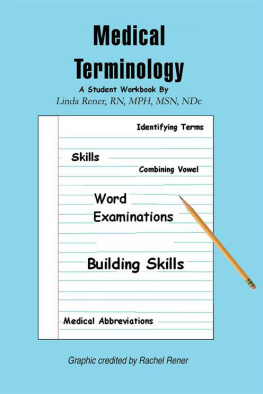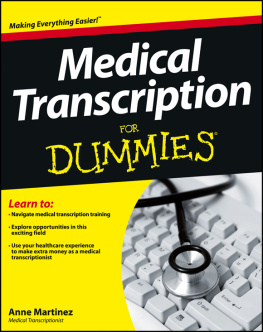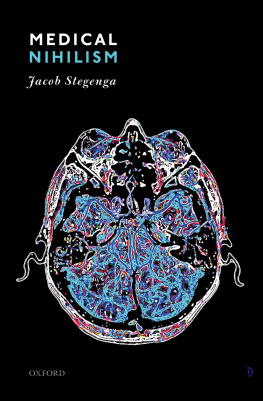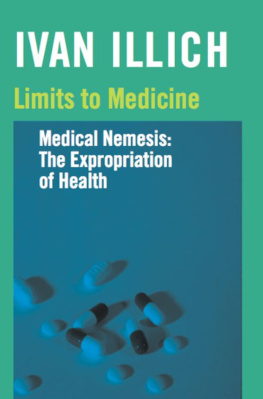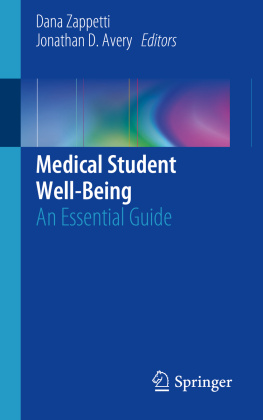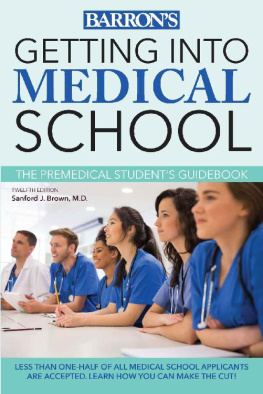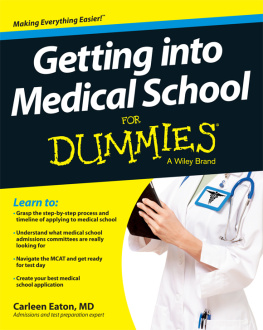Chapter 6 The intercalating year: A dose of reality from five medical students
Lucy Robinson
Shahana Hussain
Jonathan Chun-Hei Cheung
Rathy Ramanathan
Fabienne Verrall
| BPP LEARNING MEDIA |  |
The intercalating year: A dose of reality from five medical students
My intercalated year was probably one of the most valuable things I have done; partly because of the skills that I learned and partly because it proved to me just how much I really wanted to do Medicine.
 | Name:
Age:
University: | Lucy Robinson
23
Cardiff University |
| Course: | Five-year traditional integrated MBBCh |
| Year: | 4 |
| Extra info: | Intercalated IBSc in Cellular and Molecular Pathology |
I studied for my A levels at a small town comprehensive and was worried that this would put me at a disadvantage when applying for Medicine. However, through my hard work at A levels and my commitment to a vast number of extra-curricular activities I was able to secure a place to study medicine at Cardiff University.
My passion for science and desire to understand the intricate mechanisms underlying different disease processes drove me to complete an intercalated BSc course in Cellular and Molecular Pathology. I found intercalating a challenging yet very worthwhile experience. I learned about topics that interested me while gaining an appreciation of, and confidence in, a variety of academic and research skills (such as scientific writing, presentation and lab-work). I think my IBSc will definitely be of benefit to me in the future and will increase my employability.
I hope to share my experience of medical school and intercalation in particular so that future applicants can know a bit better what they need to expect!
How it all started
I first decided I wanted to do medicine after watching numerous episodes of Casualty(!). I was convinced that I wanted to be a paramedic as it would be a social job where I would get to help other people and also have the opportunity to drive a big, fast car!
However, various family members suggested that being a doctor might be a more suitable choice for my personality. I am very, very inquisitive and hate not knowing the answers to scientific questions. I am a practical person and like to get things done. I appreciate the fact that as a doctor you get to play detective, solve problems and then work together as a team of specialists to find solutions. Also the fact that doctors get paid a lot was a nice bonus!
After reading a book as a teenager that included a character who suffered with diabetes I have always been fascinated by the condition how it is a failure of one organ system that has so many ramifications for the rest of the body! It is a disease that theoretically should be completely treatable with insulin replacement therapy however it continues to challenge the medical profession in so many ways! It is a perfect example of the complexities of the human body and it is what inspires me to pursue my studies in medicine I hope someday to specialise in Endocrinology and participate in the research for a cure for this increasingly common condition.
I assumed that this thirst for knowledge and determination to succeed would be more than enough to motivate me to get me through med school. I knew it would be tough but it was what I wanted to do so I was sure I would be able to manage the workload with a smile on my face and still have enough energy to go out partying till 2.00 am every morning!
Application
After my application I was convinced that due to my good grades and the amount of time I had spent involved in extra-curricular activities and conducting work experience in a variety of healthcare settings I was guaranteed to get four places at med school. Unfortunately things did not turn out to be quite that clear cut.
Months passed and I had not heard from any of my universities. This was particularly hard as many of my friends, who did not work nearly as hard as me and thus had much worse grades than me, received offers from all six of their universities! Eventually the time period for offers lapsed and UCAS recorded that I had been rejected from all of the med schools I had applied to. I was devastated. I had always maintained that if I did not get accepted first time round I would not apply again as it would be a sign that I was not good enough to succeed in medicine. My four rejections bought me crashing down to earth! I decided it might be best to climb down off my high horse and look for other ways to achieve my dream rather than giving up without a fight! I wrote to all four of the med schools asking if they could give me feedback on what I needed to improve to do better in the future. Cardiff were kind enough to write back and informed me that due to a computer error they had never received my application and they would be more than happy to give me an interview. As you can imagine this was a bit of a shock! I went for interview two days before the A level results were due. I was offered a conditional place and the day I received my A level results and learnt that I would be attending Cardiff medical school ranks among one of the happiest days of my life!
Many people arent so lucky. Many exceptional candidates miss out on places at med school every year just because of the sheer volume of applicants. It takes so many different qualities to make a good medic that the decision of who deserves a place and who doesnt must be an incredibly tough one! My advice to anyone who doesnt get a place first time would be dont give up! If you want it to, your medical career can last you a lifetime so a year out to reapply is nothing in the grand scheme of things. I am proof that persevering with med school applications is worth it!
Life as an intercalating medical student
Life as an intercalator is very different to life as a medical student. To start with there are a lot fewer lectures and a lot more time dedicated to self-directed learning.
During an IBSc at Cardiff the year is split into two semesters during which time you have to complete 120 credits. The credits are usually made up of 7 10 credit modules and 1 50 credit research project. The modules cover a number of different topics: some are compulsory such as Research Methods or Critical Analysis of the Literature and some are optional such as Cancer Biology, Advanced Immunology and Psychiatric Genetics.
A typical day would normally comprise three to four hours of lectures followed by five to six hours of self-directed learning time to be used for background reading, revision, in-course assignments and project work.
I chose to do a laboratory-based project as opposed to a library-based or clinical research project as I am considering pursuing scientific research or cultivating a specialist interest in histopathology as part of my future career. This meant I was expected to spend a minimum of two to three days a week in the lab. I assumed my time would be filled with pipetting, titrating, running assays and collecting data. In reality I actually spent a lot of my time reading about other peoples work in the area, conducting calculations for and planning my own experiments, writing up my results and analysing data. I was lucky that my research was quite successful and that my supervisor was very supportive of my work but this also meant he was keen for me to spend extra time in the lab and often I ended up working late in to the evenings and at weekends.


